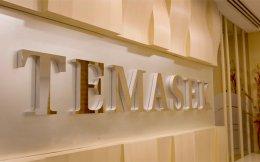The much talked about anti avoidance proposals (commonly referred to as GAAR), have brought a breather in the future of Private Equity Funds in India.
The Expert Committee formed by the government to examine GAAR (Shome Committee) has made its recommendations.
They key objectives of recommendations include bringing in greater clarity, certainty and simplicity in the law. These three elements undoubtedly lay the foundation of investor confidence in India and have a direct impact on the economic growth of a country.
In all fairness, the GAAR committee has done a commendable job in meeting the objectives outlined above.
The impact of these recommendations on Private Equity and Venture Capital Funds is quite remarkable.
Some of the key recommendations have been briefly outlined below:
• The implementation of GAAR should be deferred by three years on administrative grounds. The Committee recognises the fact that since GAAR is a fairly advanced instrument of tax administration, it requires the tax authorities to be substantially trained and gained to do justice whilst implementing the regulations.
• The recommendations make a very succinct distinction between tax evasion and tax mitigation, which is at the heart of the report.
• The report also contains a fairly exhaustive and illustrative list of instances where GAAR would be evoked.
• At the same time, it also contains a ‘negative list’ for GAAR, which refers to the specified circumstances where GAAR would not be invoked. This negative list includes payment of dividends, buyback of shares by a company, funding through debt or equity, amalgamation and demerger as approved by the High Court. These events and activities should not trigger GAAR as per the recommendations.
Another significant recommendation is that GAAR should not be invoked in intra-group transactions where overall tax revenue is not affected.
• Guidance has been given around the meaning of the term “Commercial Substance”.
Another important recommendation is the introduction of grandfathering of investments. Though it is not very clear as to how it will be operational, the recommendations state that all investment that may exist as on the date of commencement of GAAR should be grandfathered so that on exit (sale of such investments) on or after this date, the GAAR provisions are not invoked.
Last but not least, for the first time Mauritius as a jurisdiction has received a soft corner reception. The recommendations state that the GAAR provisions should not apply to examine the genuineness of the residency of an entity set up in Mauritius and after that the treaty overriding provisions should apply to GAAR as well.
Given that majority of the Private Equity and Venture Capital Fund stay invested in India using the Mauritius route, the above recommendations will go a very long way in giving impetus and boost to the confidence of such investors.
All in all, this is a clear signal to the government to amend its laws to make it tax friendly in the backdrop of bringing in certainty to investors. Although this may be the first step, there is a long way to go as a large number of other draft legislations need to be enacted. These include the Direct Taxes Code, Goods and Services Tax Act and the Companies Act.
The impact of these announcements does bring small pockets of oxygen to the investment climate of India. However, the investor confidence can survive only if these announcements are ultimately converted into good pieces of legislation in the Country.
(Anil Talreja is a Partner with Deloitte Haskins & Sells)







